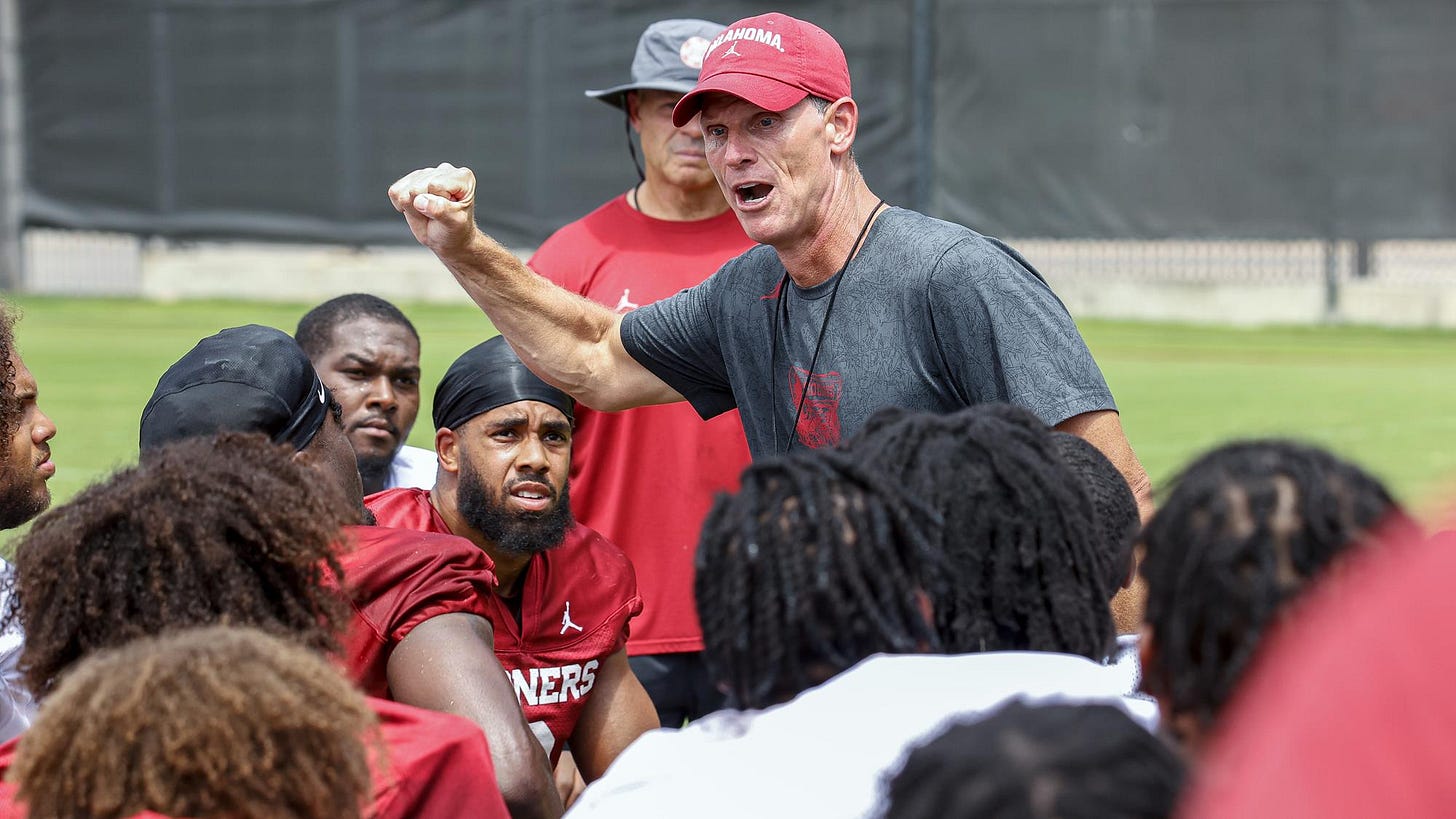Having beaten Texas, maybe it's better Venables can't see what must be true
Longhorn victory should be transformative as Sooners press forward

I have a theory.
I just wish Brent Venables had backed me up on it at his weekly press conference on Tuesday.
Answering my question, he went long and deep.
Unfortunately, that answer began like this.
“I don’t personally detect anything,” he said.
Dang it.
I thought I might gets a heads up, or confirmation, on the correct prism through which to look at the season still in front of Oklahoma, the first part of which begins at 11 a.m. Saturday when Central Florida visits Owen Field for the first and, quite possibly, last time.
The prism Venables failed to gift wrap may still be a fine, telling and accurate prism. But if you’re to adopt it, too, just know you’re doing it with no backing from him.
Here was the question:
Has Venables detected anything different about the way his players look at themselves after beating Texas? Like, did practice feel one way before entering the Cotton Bowl and a different way since exiting it? Is something palpable now that wasn’t palpable before?
You get the idea.
Venables said no.
Not that he was done with his answer.
“What you hope and what your coaching experience would say is, for everything we went through … and, you know, success requires disappointment and struggle, and we certainly had a lot of that those first 12 months for the group of guys that were here those first 12 months,” he said. “So, for me, it probably validated their hard work, affirmed their hard work and reinforced what they do.”
Makes all kinds of sense.
Nonetheless, among the things I felt when Dillon Gabriel hit Nic Anderson to beat Texas 11 days ago, one was envy for the air the Sooners now get to walk on, because that’s what it feels like when confidence moves from fine and healthy into the stratosphere.
Like, say OU falls behind.
Say the defense allows the game’s first 10 or 14 points and the offense does little to nothing the first quarter and a half.
Having not beaten Texas, the Sooners would probably be wobbly as all get out. The two sides of the ball might be looking at one another, each side giving the other side a what-the-hell stare.
Yet, having stopped the Longhorns, it has to be a different calculus.
Given its undeniable fourth-quarter goal-line stand, OU’s defense can’t help but think it’s bound to keep the score where it is until the offense figures things out.
Just the same, given the way OU’s offense delivered over the final minute and change against its Red River Rivalry foe, hardly facing second down as Dillon Gabriel drove it right down the field, it’s bound think everything’s about to fall into place and everything will soon be peachy.
Right?
And when a team’s riding that kind of confidence, of knowing rather than believing, of certainty rather than hope, will it not offer signs of having moved to a higher plane?
“Maybe individually, if they were to be asked], maybe they would say they’ve got more wind in their sail this back half [of the season],” Venables said. “I don’t know. I don’t ask them.”
Which leads to another theory.
Venables is so consistent, so on alert, so fanatically vigilant about keeping his team in that rarified building space of discipline, humility and continuity that when it raises it’s ceiling, arresting all the confidence that goes with it, he just doesn’t see it.
He kind of, sort of, copped to it.
“I’m always pretty guarded, looking for guys that are rolling their eyes or don’t believe what we’re putting in front of them,” he said, “and I feel like there’s tremendous buy-in, there’s belief and trust.”
Perhaps all’s well that ends well.
Venables can stay where he is, while his players wring every bit of added value from taking down a top-five rival that beat them by 49 points just a year prior.
Because if it’s like that, OU should only get better, Saturday to Saturday to Saturday, the way it mostly did, especially in November, when Bob Stoops ran things and the way it mostly didn’t during Lincoln Riley’s five seasons at the helm.
“My hope is that it lends credibility to the hard work that we ask of them every week,” Venables said, “and what the game requires and what it takes to develop to be successful.”
Maybe he just likes to keep everything close and simple because, frankly, that seems like the absolute least his players should have gotten out of their last victory.
Indeed, they had to have been convinced already.
Otherwise, they wouldn’t be where they are, in position to parlay one huge win, and five others, into the huge season they’ve now put on the table.

